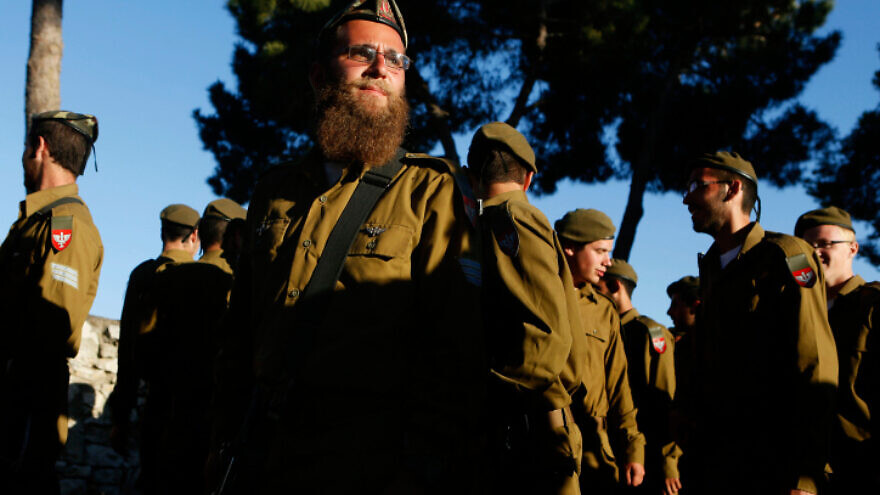Israel’s governing coalition intends to pass a law regulating the draft into the Israel Defense Forces of haredi, or ultra-Orthodox, Jewish men during this fall’s parliamentary session, temporarily delaying its judicial reform program.
“This is the order: First the draft law, and only then the continuation of the legal reform,” coalition whip MK Ofir Katz (Likud) told Ynet on Thursday, stressing, “We don’t know yet what the law will look like, how it will be phrased and what the numbers [of draftees] will be.”
Following Katz’s remarks, the enlistment law working group, which includes Cabinet secretary Yossi Fuchs as well as representatives of the ultra-Orthodox parties (Shas and United Torah Judaism), IDF, National-Civilian Service Administration and government ministries, said that “discussions are progressing toward the goal of reaching an outline.”
According to the statement, the proposed bill will seek a “balance between security and economic needs by involving the ultra-Orthodox public in employment and noting the value of Torah study.”
The working group plans to submit the full outline “in the coming weeks,” it added.
On Tuesday, Prime Minister Binyamin Netanyahu’s haredi coalition partners demanded that the judicial reform effort be halted “indefinitely” to allow for the passing of a law that would give their constituents a near-total exemption from military service.
Defense Minister Yoav Gallant reportedly told haredi politicians, including Shas Party leader Aryeh Deri, that it would be impossible to enact the draft law in the current political climate.
According to the ultra-Orthodox Kikar HaShabbat news site, the heads of the UTJ and Shas parties subsequently informed Netanyahu they would vote against any further “unilateral” (that is without support from the parliamentary opposition) judicial reform legislation.
The issue of haredi military exemptions has long been a point of contention in Israel, with opponents of the practice arguing that it places a heavy and unfair burden on the rest of the population and discourages members of the ultra-Orthodox community from working.
For decades, ultra-Orthodox Israelis have received near-blanket exemptions from national service, but in 2012 the Supreme Court struck down the law permitting the arrangement. A new law was also overturned by the court in 2017.
Since then, defense ministers have received more than a dozen extensions from the court, as the Knesset failed to pass legislation.
While the new proposal is still being drafted, it will reportedly lower the age at which haredi Jewish men need to receive deferments from serving in the military and significantly increase the pay of combat soldiers. The initiative would also reduce the length of time soldiers in positions deemed less essential need to serve.

























